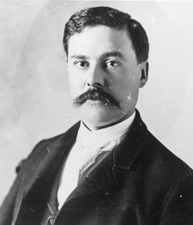Wait! He has made speeches stating we should strike. He has sent Secretary of State John Kerry to Congress to make the case for war.
Okay, now read between the lines. Politics is almost completely a matter of symbolism. It is even more so in the new media age of the 21st Century.
I tend to think that the activists and the partisans struggle most to see the symbolism of what is going around them. They are too close to it. They are following every speech. They are reading every article. They are fighting on every FB thread.
However, it is not what political actors say, but what they mean that matters.
I turn to Benjamin Cosman of PolicyMic:
Less than a week ago, it seemed like a foregone conclusion that Obama would take executive action and pull the trigger on a missile strike against Syria in retaliation for President Bashar al-Assad’s regime’s use of chemical weaponry against Syrian rebels and civilians on August 21. Sure, the president kept promising that he had “not made a decision” on military intervention. But at the same time, his administration made it clear that there was “no doubt” the Syrian government used chemical weapons against its own citizens, thus crossing the “red line” Obama set a year agowhen he said “A red line for us is when start seeing a whole bunch of chemical weapons moving around or being utilized.” And yet now intervention has been put to Congress and looks like a long shot. Why would Obama go to Congress for approval, when he, despite a few legal qualms, could have pulled off a strike unilaterally — and even did so in Libya two years ago?
During this feigned war mongering, Obama has routinely claimed that U.S. credibility is at stake. In reality, though, the only credibility on the line is his own. Of course Obama doesn’t want to invade Syria. It makes no sense for him. It’s wildly unpopular with the public (to the tune of a48% to 29% margin), politically disastrous within his own party, and garnering support from the sort of people the president wants nothing to do with (we’re looking at you, Sen. Lindsey Graham). But he couldn’t back off his previous stance, and he couldn’t appear weak. If there’s one thing Obama hates, it’s looking weak.
Cosman continues:
And then, at the last minute, the president sends the decision to Congress … where he knows it won’t pass. Because the president doesn’t want to strike Syria, he just has to pretend he does. This way, Congress takes the heat for doing nothing. At least Obama can say he tried. What does he do to make sure the U.S. stays out of Syria? Obama tanks.
Obama did not at the last minute decide that Congressional authorization was important. While it may be Constitutional and all, nobody has considered it to be important for decades and the Congress has become such a joke that they are ever easy to ignore. However, Congress gave President Obama an out.
out.
As Crosman points out, this allows Obama to talk tough about human rights, appear to respect the separation of powers, and NOT go to war.
Is this just some pro-Obama-apologetics? Heavens, no. I just accused him of being a puppet master within a cynical and contrived game. Nothing noble about that.
But this is not a game, right? Of course, it is. American government and politics is a game. It is a deadly and expensive game. I no longer enjoy playing it.
This game is not brought to you by Milton Bradley or EA Sports. It has been brought to you by James Madison.
Have you just been playing a game then? Have your passionate debates, your yard signs, and your activism all been just mere play.
No, you have not been playing the game.
However, you have been played.












